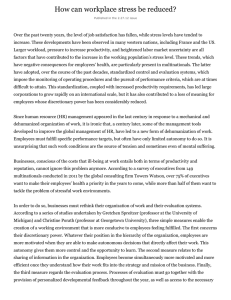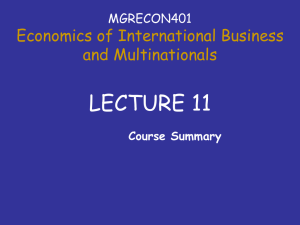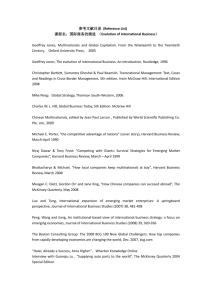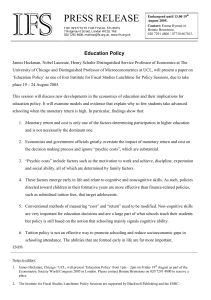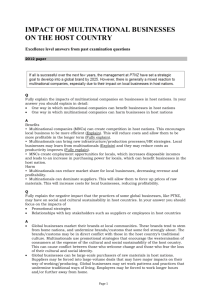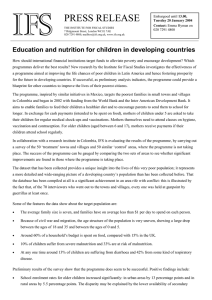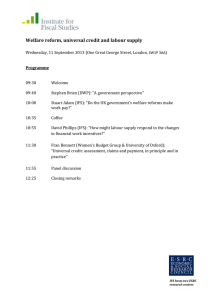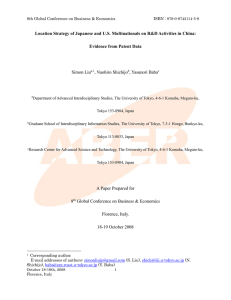IFS PRESS RELEASE
advertisement
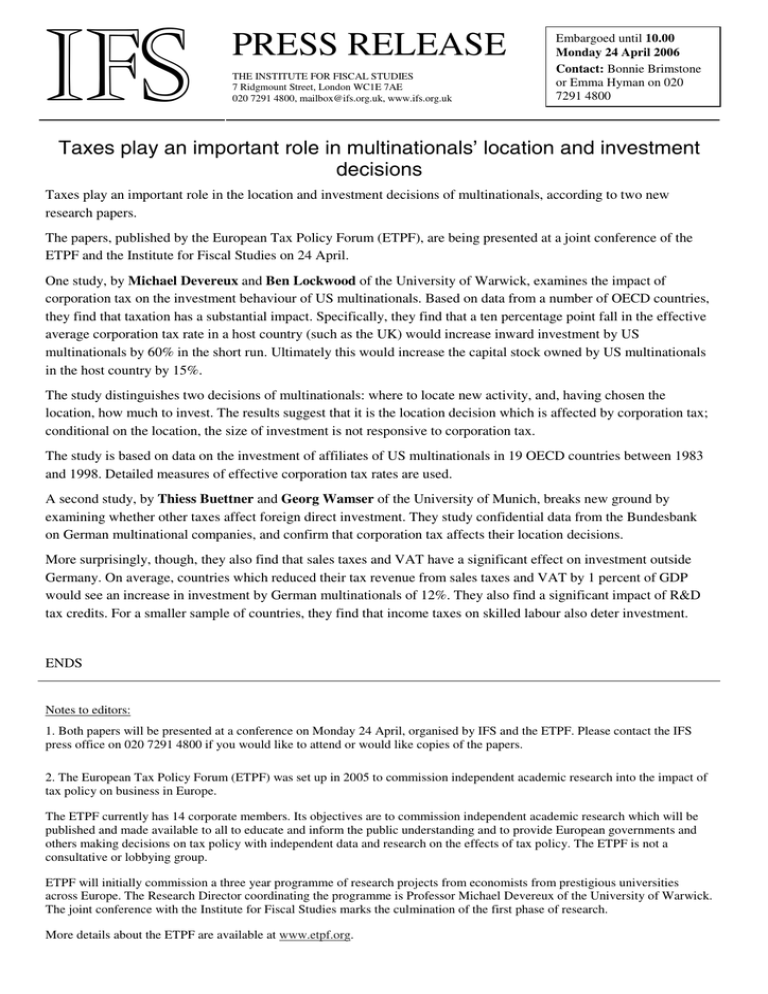
IFS PRESS RELEASE THE INSTITUTE FOR FISCAL STUDIES 7 Ridgmount Street, London WC1E 7AE 020 7291 4800, mailbox@ifs.org.uk, www.ifs.org.uk Embargoed until 10.00 Monday 24 April 2006 Contact: Bonnie Brimstone or Emma Hyman on 020 7291 4800 Taxes play an important role in multinationals’ location and investment decisions Taxes play an important role in the location and investment decisions of multinationals, according to two new research papers. The papers, published by the European Tax Policy Forum (ETPF), are being presented at a joint conference of the ETPF and the Institute for Fiscal Studies on 24 April. One study, by Michael Devereux and Ben Lockwood of the University of Warwick, examines the impact of corporation tax on the investment behaviour of US multinationals. Based on data from a number of OECD countries, they find that taxation has a substantial impact. Specifically, they find that a ten percentage point fall in the effective average corporation tax rate in a host country (such as the UK) would increase inward investment by US multinationals by 60% in the short run. Ultimately this would increase the capital stock owned by US multinationals in the host country by 15%. The study distinguishes two decisions of multinationals: where to locate new activity, and, having chosen the location, how much to invest. The results suggest that it is the location decision which is affected by corporation tax; conditional on the location, the size of investment is not responsive to corporation tax. The study is based on data on the investment of affiliates of US multinationals in 19 OECD countries between 1983 and 1998. Detailed measures of effective corporation tax rates are used. A second study, by Thiess Buettner and Georg Wamser of the University of Munich, breaks new ground by examining whether other taxes affect foreign direct investment. They study confidential data from the Bundesbank on German multinational companies, and confirm that corporation tax affects their location decisions. More surprisingly, though, they also find that sales taxes and VAT have a significant effect on investment outside Germany. On average, countries which reduced their tax revenue from sales taxes and VAT by 1 percent of GDP would see an increase in investment by German multinationals of 12%. They also find a significant impact of R&D tax credits. For a smaller sample of countries, they find that income taxes on skilled labour also deter investment. ENDS Notes to editors: 1. Both papers will be presented at a conference on Monday 24 April, organised by IFS and the ETPF. Please contact the IFS press office on 020 7291 4800 if you would like to attend or would like copies of the papers. 2. The European Tax Policy Forum (ETPF) was set up in 2005 to commission independent academic research into the impact of tax policy on business in Europe. The ETPF currently has 14 corporate members. Its objectives are to commission independent academic research which will be published and made available to all to educate and inform the public understanding and to provide European governments and others making decisions on tax policy with independent data and research on the effects of tax policy. The ETPF is not a consultative or lobbying group. ETPF will initially commission a three year programme of research projects from economists from prestigious universities across Europe. The Research Director coordinating the programme is Professor Michael Devereux of the University of Warwick. The joint conference with the Institute for Fiscal Studies marks the culmination of the first phase of research. More details about the ETPF are available at www.etpf.org.
